Morten Tyldum’s The Imitation Game very much is in the Oscar-bait mode. It’s the Weinsteins’ bid for this year’s The King’s Speech (2010), and it shows; and it might work, but it’s by no means a lock. This isn’t as cozy as The King’s Speech, nor is it as finely tuned for audience pleasure. That comfy-chair, Brit-movie feel is absent. Oh, it’s still a pleasurable experience overall, and it’s laced with the kind of humor you only find in British movies (even when they’re directed by Norwegians). It’s entertaining and expertly made, but it’s a little too angular to be warm and fuzzy. Actually, I consider this a point in its favor — especially after the bland The Theory of Everything — but how that plays with audiences is another matter. However, this is by no means a difficult picture. It’s a fairly straightforward biopic, but with thriller/mystery trappings.
The film tells the story of Alan Turing (Benedict Cumberbatch) — the mathematical genius who pretty much fathered the computer — focusing on the WWII era when he and a team of other experts (ultimately under his direction) broke the secret to decoding the “unbreakable” German Enigma machine. (Some viewers may recall that this ground was covered by Michael Apted’s 2001 Enigma — a largely fictionalized account complete with name changes.) The Imitation Game is structured around a framing story of Turing telling his tale (with the caveat of the listener needing to be sure he wants to hear it). The actual Enigma events are flashbacks — into which other flashbacks are nested. On examination, it’s possible to see that the film’s structure — while seeming very basic — is actually quite complex. It’s a testament to first-time screenwriter Graham Moore and director Tyldum that the ride is so smooth that it feels a lot simpler than it is. The tricky point from a reviewing standpoint is just how much of the structure — which itself holds some mystery — to discuss. I’m erring on the side of caution and leaving it alone.
What I am not leaving alone is the major topic that Enigma skipped over — Turing’s sexuality. This, too, is something that The Imitation Game reveals slowly, but it’s hinted at throughout the film, buried to some degree by the man’s self-possessed arrogance, literal-mindedness and cosmic social ineptitude. That these are perhaps part of his closeted homosexuality — and not just part and parcel of the movie world’s notions of a prickly genius — is only suggested and then only slowly. But this aspect of the film is essential. Some of my more fired-up critical comrades think The Imitation Game is insufficiently outspoken on this aspect of Turing. After all, we are talking about a man who was instrumental in helping to win the war, and who was a few years later vilified and destroyed by his own government’s barbaric laws. I understand their point but stop short of embracing it. I believe there is something to be said for the chilling matter-of-fact approach the film chooses to take. It has, after all, spent a great deal of time making a not inherently likable character into a likable one and never goes back on that. Its quiet condemnation strikes me as bitterly eloquent in its own right.
That the film is conceived as a thriller — there are mysteries upon mysteries in its fabric — makes it clear why Morten Tyldum was tapped to direct. His twisty, cerebral thriller Headhunters (2011) makes him close to a perfect choice. In many ways, The Imitation Game reminds me of Tomas Alfredson’s (another Scandinavian director) Tinker Tailor Soldier Spy (2011), though less complex and certainly less ambiguous.
Much has been said in praise of Cumberbatch’s performance, and I don’t say it’s undeserved. At the same time, it seems to me that Keira Knightley is being largely overlooked in the role of the woman on the team who loves Turing regardless — and maybe partly because — of his sexuality. It’s not as showy a part, but playing a brilliant woman in a society with very clear and condescending ideas about what women should and shouldn’t do still affords her a worthy role. The rest of the cast is also fine — with Mark Strong a standout as the pragmatic, sardonic but maybe not entirely unsympathetic MI6 official. Is The Imitation Game middlebrow stuff as some have claimed? In a sense, yes, it probably is, but that doesn’t prevent it being compelling entertainment. Rated PG-13 for some sexual references, mature thematic material and historical smoking.



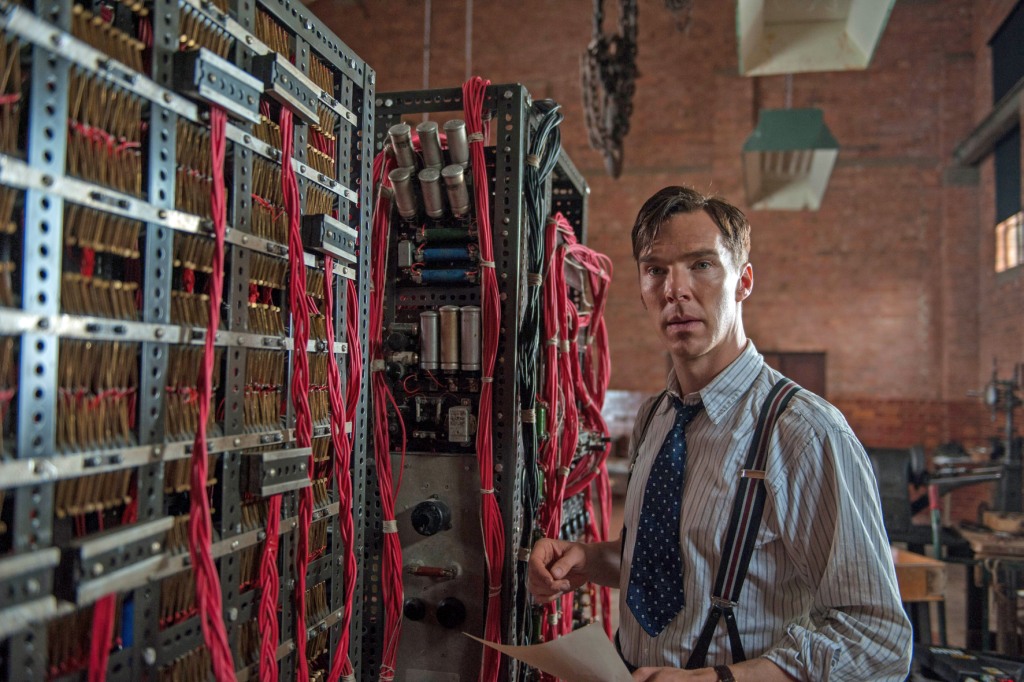

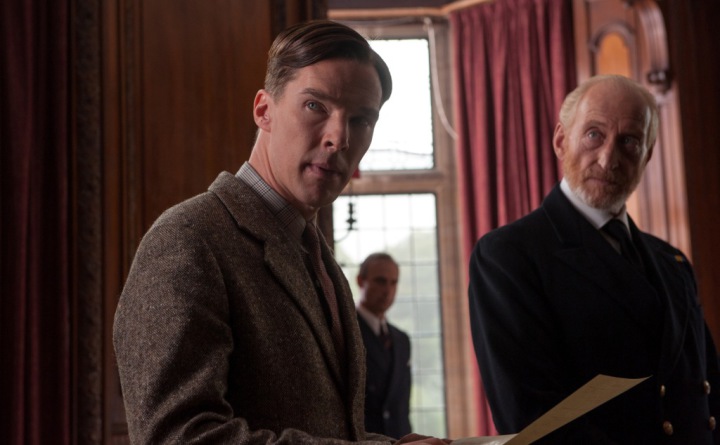
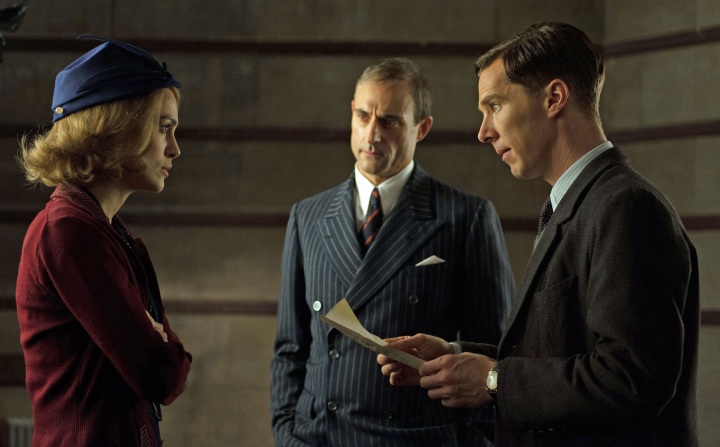
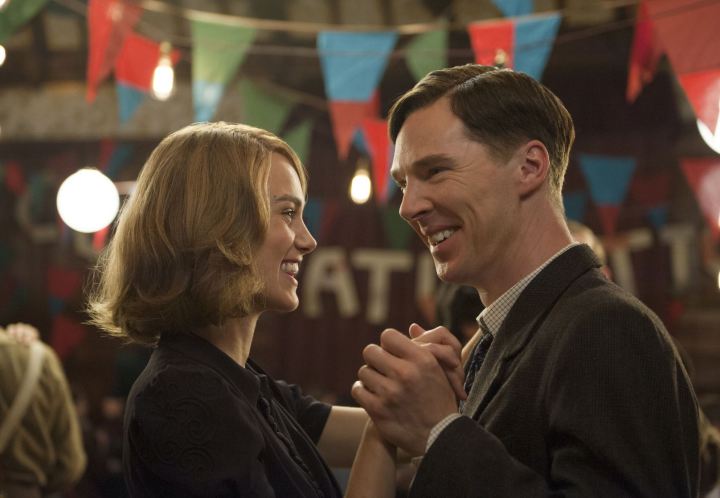
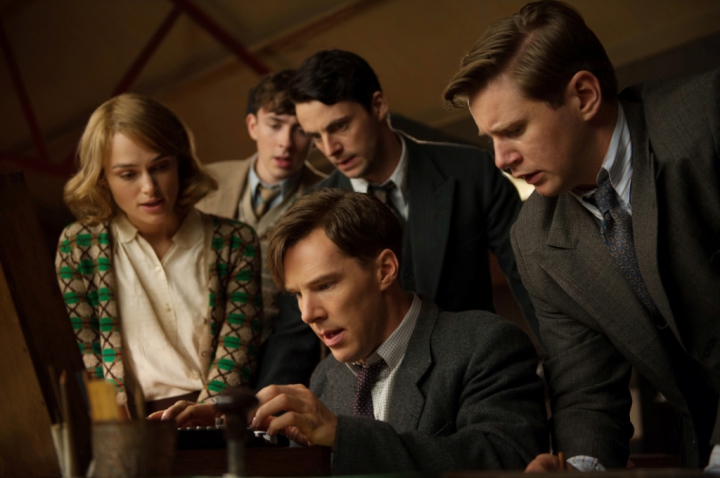
Benedict Cumberbatch has excellent control over his face.
Haven’t seen the movie yet, but Ken Hanke’s nuanced review here draws my interest. I’ve noticed a couple of his reviews in the past, which also seemed more thoughtful and considered than the usual fare. Don’t know who reads these comments, but thanks Mr. Hanke.
Well, Mr. Bishop, I don’t know else reads the comments, but I certainly do. Thank you for your kind words..
OK, just saw the film, Ken. Again, thanks for the prompt. I certainly agree about the level of the acting and the directing. Very nicely put together. I’d guess there were liberties taken with the actual history, as is most often the case, but from what I know of the events, enigma & the code-breaking, the film stayed essentially true to the operation.
As a movie, I was surprised at how emotionally affected I was by the rendering, and without the usual cheap tricks. I much appreciated Tyldum’s discretion (quite “decorous”). I can imagine what Hollywood would have done with this. So, three cheers for intelligent movie-making –middle-brow or not. And for intelligent reviewing –keep up the good work.
If only this was the standard for all “middle-brow” filmmaking, but it’s really on the fairly rare side.
I always make a point of seeking out Ken Hanke’s opinion before deciding which film to see. It seems his views predict which is intelligent/moving/ thrilling. No exception here, a vibrant saga about pioneering applied math, made so by subtle virtuoso performances. For me, for years, he has been in the reliable company of Dargis, Toppman, Morgenstern and a select few others.
Thank you.